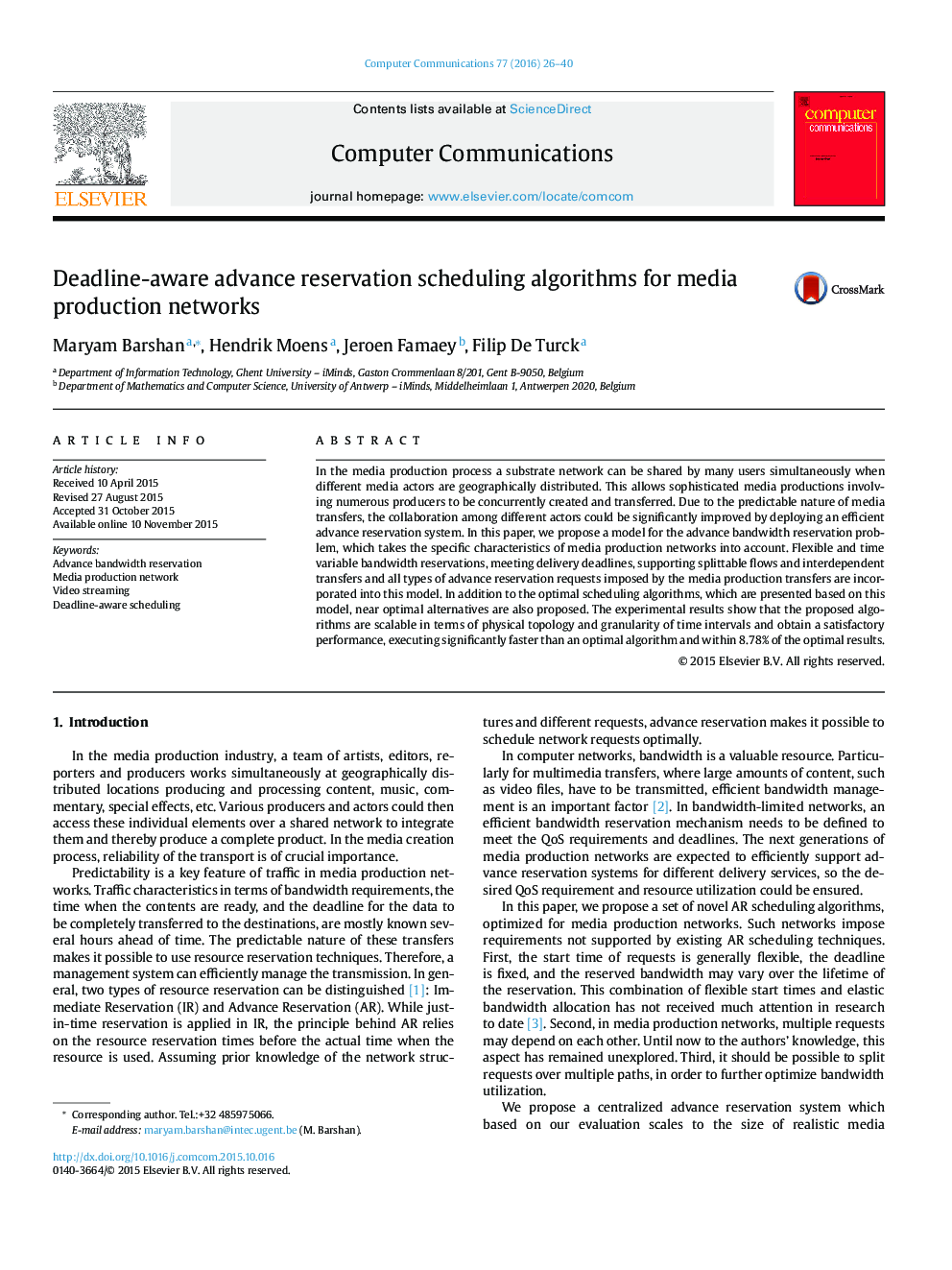| Article ID | Journal | Published Year | Pages | File Type |
|---|---|---|---|---|
| 448069 | Computer Communications | 2016 | 15 Pages |
In the media production process a substrate network can be shared by many users simultaneously when different media actors are geographically distributed. This allows sophisticated media productions involving numerous producers to be concurrently created and transferred. Due to the predictable nature of media transfers, the collaboration among different actors could be significantly improved by deploying an efficient advance reservation system. In this paper, we propose a model for the advance bandwidth reservation problem, which takes the specific characteristics of media production networks into account. Flexible and time variable bandwidth reservations, meeting delivery deadlines, supporting splittable flows and interdependent transfers and all types of advance reservation requests imposed by the media production transfers are incorporated into this model. In addition to the optimal scheduling algorithms, which are presented based on this model, near optimal alternatives are also proposed. The experimental results show that the proposed algorithms are scalable in terms of physical topology and granularity of time intervals and obtain a satisfactory performance, executing significantly faster than an optimal algorithm and within 8.78% of the optimal results.
